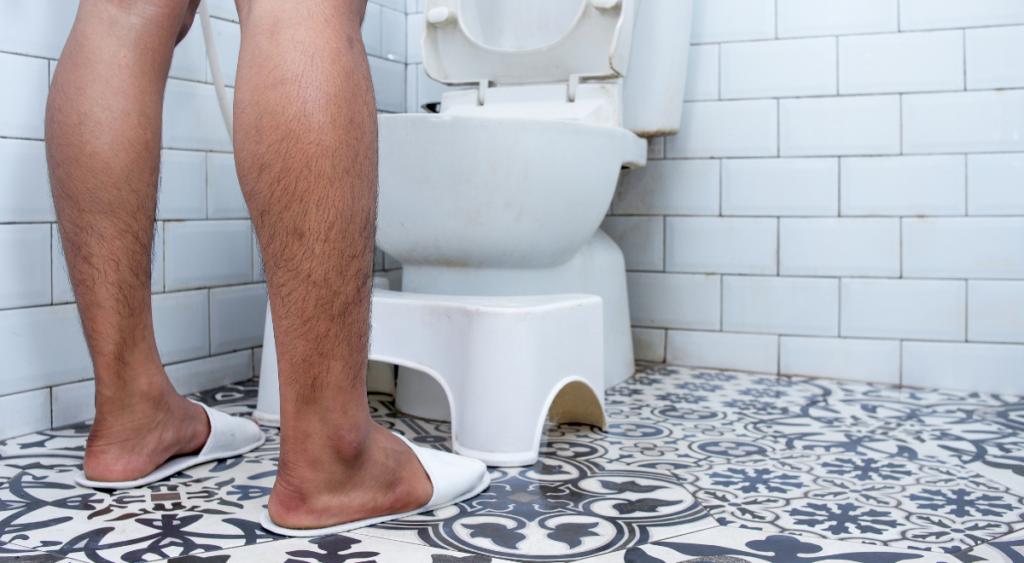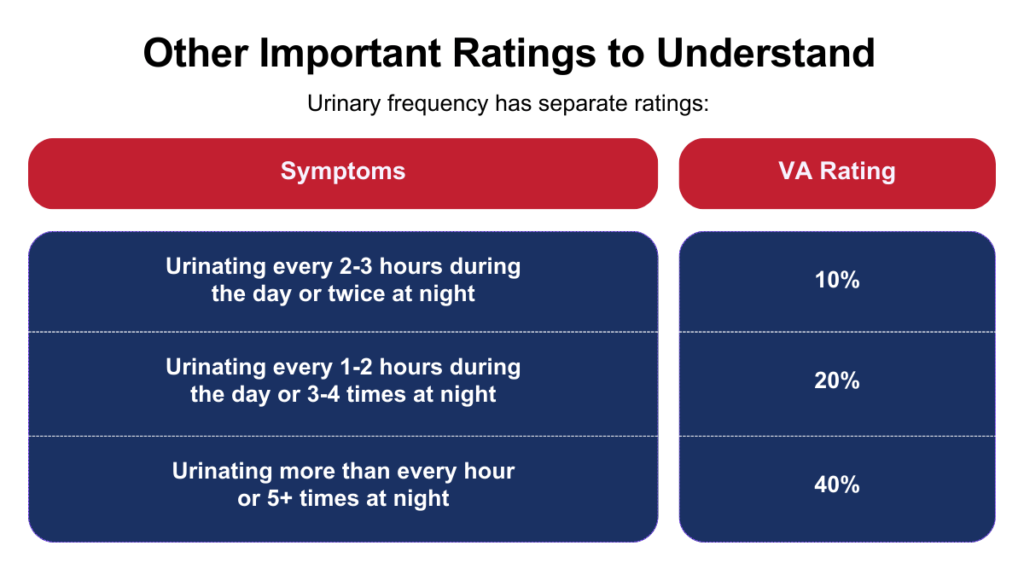Dealing with Benign Prostatic Hyperplasia (BPH) can be challenging, especially if it’s linked to your military service. You might have questions about VA disability benefits for BPH. This post explores BPH as a VA disability benefit. We’ll cover how the VA rates BPH, how it can be service-connected, and common related conditions. We’ll guide you through the process of getting veterans affairs disability benefits, clarifying the steps and potential challenges when seeking compensation for veteran’s BPH.
Understanding Benign Prostatic Hyperplasia (BPH)
BPH, or an enlarged prostate, isn’t prostate cancer. But it can cause difficult symptoms like frequent urination, a weak urine stream, and the feeling of incomplete bladder emptying. BPH becomes more common as men ag.
This prevalence makes obtaining service connection for BPH more complex. It must be directly tied to your military service. Or it can be secondary to a service-connected condition. There may be options for those experiencing BPH symptoms and traumatic brain injury (TBI).

Benign Prostatic Hyperplasia as VA Disability Benefits
While getting VA disability for BPH directly isn’t common, there are qualifying paths. Secondary service connection is one option if another service-connected condition aggravates your BPH. Some conditions can influence BPH. Making secondary conditions an important factor to consider is important.
Direct Service Connection for BPH
Direct service connection means something during your service directly caused your BPH. This can be hard to prove. There isn’t a widely recognized link between typical military service and developing BPH.
This doesn’t mean it’s impossible. Strong medical evidence linking your BPH onset to a specific in-service incident, injury, or illness is vital.
Secondary Service Connection for BPH
Secondary conditions occur when a service-connected disability causes or worsens another health problem. While less is known about direct causes, you could qualify for VA disability benefits for BPH.
You will need to prove your existing service-connected condition triggered or worsened your BPH. This might include symptoms like increased urinary frequency.
Common Secondary Conditions
Some conditions, like those causing nerve damage or hormone imbalances, could worsen BPH symptoms. Research suggests TBI survivors are at higher risk for urinary issues.
This is a condition where secondary service connection might apply. Some medications for other service-connected conditions may affect prostate health. These can potentially cause BPH or worsen symptoms.

VA Rating System for BPH
The VA doesn’t have a specific rating for BPH itself. It’s rated under “voiding dysfunction” or “urinary tract infections,” depending on the most prominent issue, under diagnostic code 7527. The severity of your BPH-related urinary symptoms determines your VA disability benefits.
Voiding Dysfunction Ratings
Voiding dysfunction ratings depend on urine leakage. Needing to change absorbent materials more than four times daily is a 60% rating.
Two to four changes result in a 40% rating. Less than two changes receive a 20% rating.
Urinary Tract Infection (UTI) Ratings
If BPH-related UTIs are your main problem, ratings are based on severity and required treatment. Infections needing ongoing, intense management could be rated at 30%.
A 10% rating might apply for infections needing long-term medication and perhaps a couple of hospital stays yearly. Charles Weinacker, a 73-year-old Vietnam veteran, shared his experience with BPH and UTIs. He struggled to get his condition recognized as service-connected.
This highlights the challenges veterans face with BPH and VA disability claims. Charles’s story emphasizes the importance of thorough documentation and persistence.

If other BPH or UTI-related problems arise, such as renal dysfunction, the VA considers their overall health impact. This is important for disability ratings. This approach provides a more comprehensive disability picture when seeking VA benefits for BPH. It also includes the impact of factors like daytime voiding interval.

The Claims Process
File for BPH-related VA disability using the standard VA application form. A veterans advocate can also help you with this process.
Gathering Evidence
Medical evidence is essential for BPH VA disability claims. Gather complete medical records about your BPH diagnosis, treatment, and symptoms. These records should include your daytime voiding interval and the severity of any related urinary incontinence. You might also qualify if your BPH leads to obstructive sleep apnea.
Include information about any prescriptions or medications. Medical professional insight is important. This can clarify how treatments affect BPH symptoms. If you’re claiming a direct service connection, link BPH onset to a service event with medical evidence, including a nexus letter from a medical professional.

The C&P Exam
Be prepared for a Compensation & Pension (C&P) exam. The VA uses it to assess BPH’s impact on your life. Arrive on time, as missing it can affect your claim.
Explain the severity of any UTI symptoms during the exam. This provides data about your urinary health. Combined with your medical records, this supports your claim. Saw palmetto can sometimes help with BPH, but it doesn’t replace medical treatment.

Additional Tips and Resources
If BPH affects your ability to work, consider Total Disability based on Individual Unemployability (TDIU). This offers increased disability ratings for those unable to maintain substantially gainful employment due to their service-connected condition.
Conclusion
Seeking VA disability benefits for BPH can feel overwhelming, but understanding how the VA rates BPH and establishing service connection is crucial. Strong medical evidence can significantly improve your chances of a successful claim.
Expert guidance makes a difference. Don’t let the complexities of the VA system discourage you. Many veterans successfully receive benefits for BPH and related conditions like prostatic hypertrophy.
Addressing prostate health concerns early improves outcomes. If you’re experiencing BPH symptoms and believe they are service-related, don’t hesitate to seek help from Vet Claim Solutions.For veterans with severe urinary incontinence, Agent Orange exposure, or BPH as a secondary condition to TBI, understanding VA disability ratings is essential. Proper documentation ensures you receive the care and compensation you deserve.



